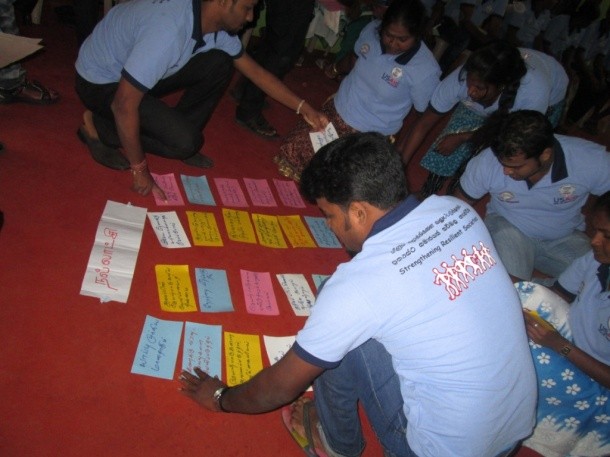
Ninety-four individuals representing 33 community-based organizations from war-torn areas of Sri Lanka’s Northern province came together over three weeks in the town of Vavuniya to participate in workshops focused on social accountability, good governance and community needs. The workshops, held in December 2012 and January 2013, marked the first time many of these organizations had the opportunity to travel outside of the northern capital of Jaffna and interact with communities from other parts of the country.
For the duration of Sri Lanka’s 30-year conflict between the government and Tamil rebels, communities in the Northern province suffered from external pressure by various paramilitary groups, political parties, student organizations and minor armed groups affiliated with both sides. This negative influence strained the autonomy of civil society and hampered the ability of community-based organizations to function independently.
Since the end of the conflict in May 2009, USAID has been supporting community-based organizations in the north to reestablish themselves. USAID’s assistance has helped these organizations to address their needs and to build bridges with counterparts in other areas of Sri Lanka, contributing to the transition to peace.
Developed in close coordination with the communities, training programs like these workshops provide opportunities for civil society leaders to learn effective communication and participatory approaches to address the residents' social, economic and physical needs.
"I realized how good governance, social accountability and communication processes are important in supporting resilient societies like us. Tools and games that were used in this training and the creative hours really helped us to think critically and break the barriers in community engagement," said S. Kirusika, representing Arivoly Community Center.
As a result of the workshops, members of the participating organizations are now planning to support another USAID activity in which youth are promoting community service days in neighborhoods once inaccessible to them during the conflict. The organization members and youth will work together to clean public facilities, build a soccer field and otherwise improve the communities.







Comment
Make a general inquiry or suggest an improvement.